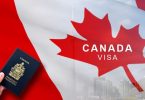Canada stands out as a top destination for foreign nurses seeking career advancement and educational opportunities in a developed nation. Renowned for its high quality of life, diverse culture, and robust healthcare system, Canada offers an appealing environment for nursing professionals.
However, navigating the process of securing nursing jobs and obtaining grants or scholarships in Canada can pose challenges for foreign applicants unfamiliar with the Canadian system and its requirements. To assist foreign students aspiring to work and study in Canada, we have compiled a list of the top places to find nursing jobs and grants.
Top 10 Places to Find Nursing Jobs in Canada:
- Health Canada: The federal department responsible for public health and healthcare services in Canada, offering positions such as public health nurses and nurse practitioners.
- Provincial and Territorial Health Authorities: Organizations managing healthcare services in each province and territory, providing opportunities in hospitals, clinics, long-term care facilities, and home care.
- Canadian Nurses Association (CNA): The national professional association for registered nurses in Canada, featuring a job board with nursing opportunities across the country.
- Canadian Association of Schools of Nursing (CASN): Canada’s national accrediting body for nursing education programs, offering career opportunities in academic settings.
- Canadian Nurses Foundation (CNF): A charitable organization supporting nursing education, research, and innovation, featuring nursing job listings related to their programs.
- Canadian Association of Perioperative Nurses (CAPN): Canada’s professional association for perioperative nurses, offering job opportunities in surgical care settings.
- Canadian Association of Critical Care Nurses (CACCN): The national association for critical care nurses in Canada, providing career options in intensive care units.
- Canadian Association of Nephrology Nurses and Technologists (CANNT): The professional association for nephrology nurses and technologists, offering positions in kidney care.
- Canadian Hospice Palliative Care Association (CHPCA): The national association for hospice palliative care, featuring nursing job opportunities in end-of-life care.
- Canadian Indigenous Nurses Association (CINA): The professional association for Indigenous nurses in Canada, offering positions for those working with Indigenous communities.
Top 10 Grants and Scholarships for Foreign Nursing Students in Canada:
- Canadian Queen Elizabeth II Diamond Jubilee Scholarships (QES)
- Canadian Commonwealth Scholarship Program (CCSP)
- Canadian Francophonie Scholarship Program (CFSP)
- Canada Graduate Scholarships – Master’s Program (CGS M)
- Canada Graduate Scholarships – Doctoral Program (CGS D)
- Vanier Canada Graduate Scholarships (Vanier CGS)
- Banting Postdoctoral Fellowships (Banting PDF)
- Canadian Institutes of Health Research (CIHR) Doctoral Research Award
- CIHR Postdoctoral Fellowship
- CIHR Canada Graduate Scholarships – Michael Smith Foreign Study Supplements (CGS-MSFSS)
Top 10 Best Nursing Jobs in Canada:
- Nurse Practitioner (NP)
- Nurse Educator
- Nurse Manager
- Nurse Consultant
- Nurse Anesthetist
- Nurse Researcher
- Nurse Informaticist
- Travel Nurse
- Flight Nurse
- Public Health Nurse
How to Apply and Get Approved:
- Obtain a Nursing Degree or Diploma
- Get Your Credentials Assessed by the National Nursing Assessment Service (NNAS)
- Apply for a License from the Regulatory Body in Your Chosen Province or Territory
- Find a Nursing Job Matching Your Qualifications and Skills
- Obtain a Work Permit from Immigration, Refugees and Citizenship Canada (IRCC)
Obtain a nursing degree or diploma: You must have a nursing degree or diploma from a recognized institution in your home country or abroad. The minimum requirement for most nursing jobs in Canada is a bachelor’s degree (BScN) or equivalent. However, some positions may require a master’s degree (MSN) or a doctorate (PhD) in nursing or a related field.
Get your credentials assessed: You need to have your nursing education and experience assessed by the National Nursing Assessment Service (NNAS), which is the organization that evaluates the credentials of internationally educated nurses who want to work in Canada. You must create an online account, pay the fees, and submit your documents, such as transcripts, diplomas, licenses, and references, to the NNAS. The NNAS will review your documents and issue an advisory report, which will indicate your level of education and competency compared to Canadian standards. You can find more information on their website.
Apply for a license: You must apply to practice nursing in the province or territory where you want to work. Each province and territory has its own regulatory body that sets and enforces the standards and requirements for nursing practice. You need to contact the regulatory body in your chosen province or territory and submit your application, along with your NNAS advisory report and other documents, such as proof of identity, language proficiency, and criminal record check. You may also need to pass a national exam, such as the Canadian Registered Nurse Examination (CRNE) or the Canadian Practical Nurse Registration Examination (CPNRE), depending on your level of nursing. You can find the list of regulatory bodies and their contact information on the CNA website.
Find a job: You must find a nursing job matching your qualifications, skills, and interests. You can search for nursing jobs in Canada by using various sources, such as the websites of the organizations mentioned above, online job boards, newspapers, or networking. You may also need to prepare a resume, a cover letter, and a portfolio highlighting your education, experience, and achievements in nursing. You may also need to attend interviews in person, by phone, or by video to demonstrate your suitability for the job. You may also need to negotiate your salary, benefits, and working conditions with your employer.
Obtain a work permit: You must obtain a work permit to work legally in Canada as a foreigner. A work permit is a document that authorizes you to work for a specific employer for a specific period of time and under specific conditions. You need to apply for a work permit from Immigration, Refugees and Citizenship Canada (IRCC), the federal department managing immigration and citizenship in Canada. You must meet the eligibility criteria, such as having a valid passport, a job offer, a medical exam, and a police clearance, and pay the fees. You can find more information on their website.
In conclusion, while pursuing a nursing career in Canada as a foreigner may present challenges, following these steps and utilizing available resources can help foreign nurses achieve their goals of working and studying in Canada, contributing to the nation’s healthcare landscape. We wish you success in your nursing career endeavors in Canada!






